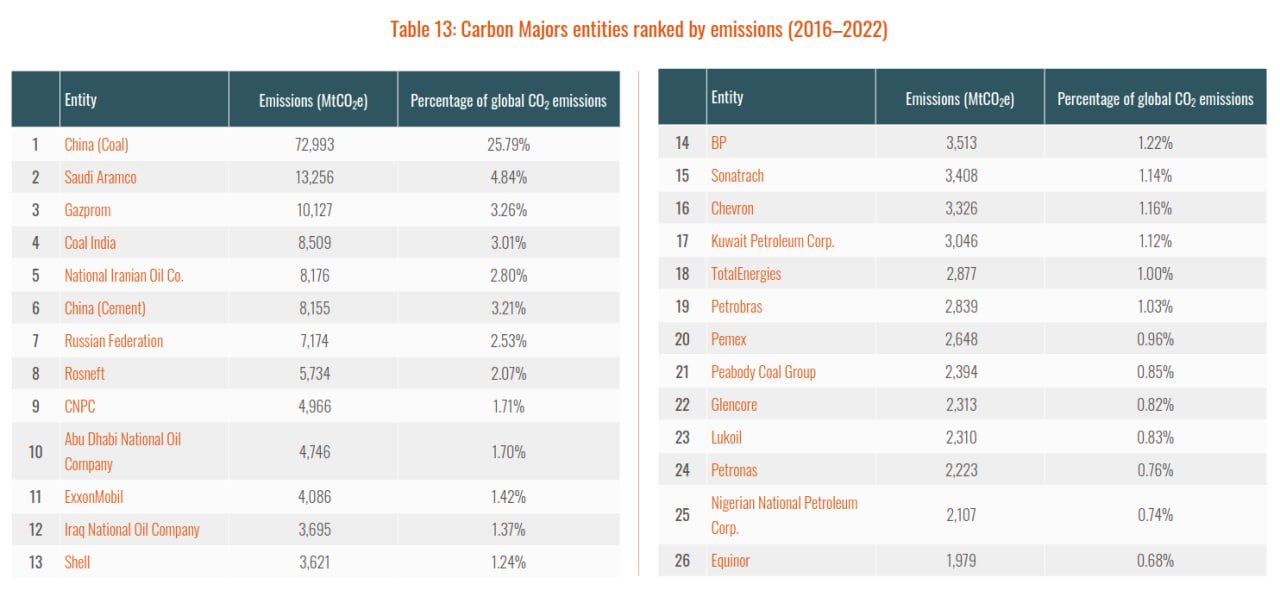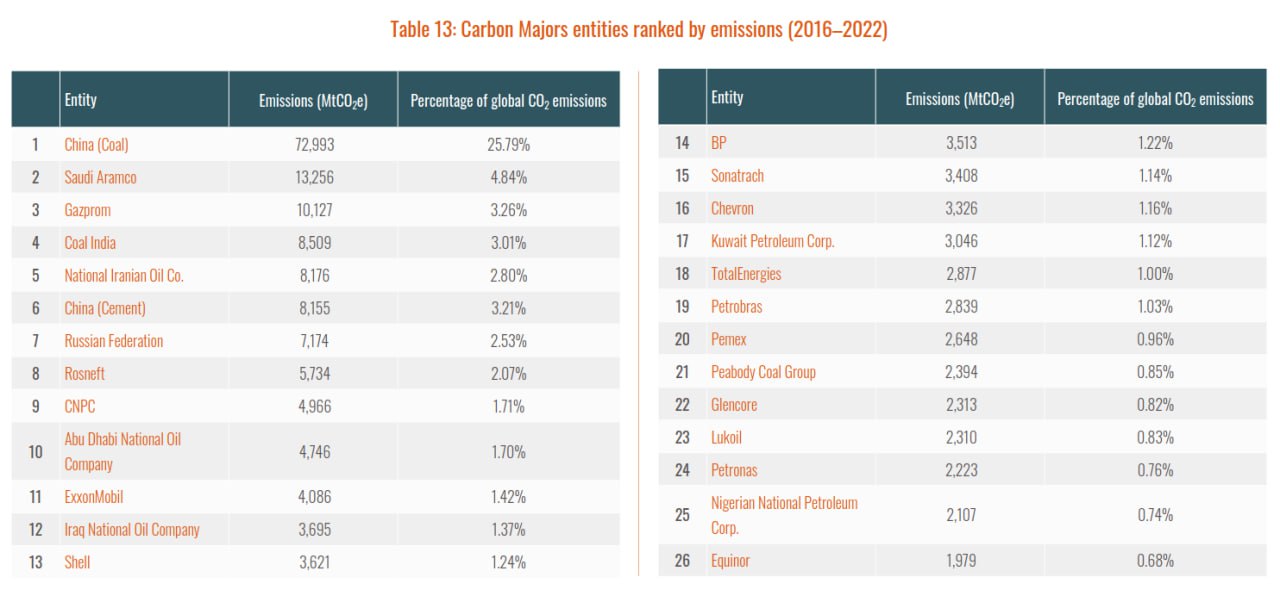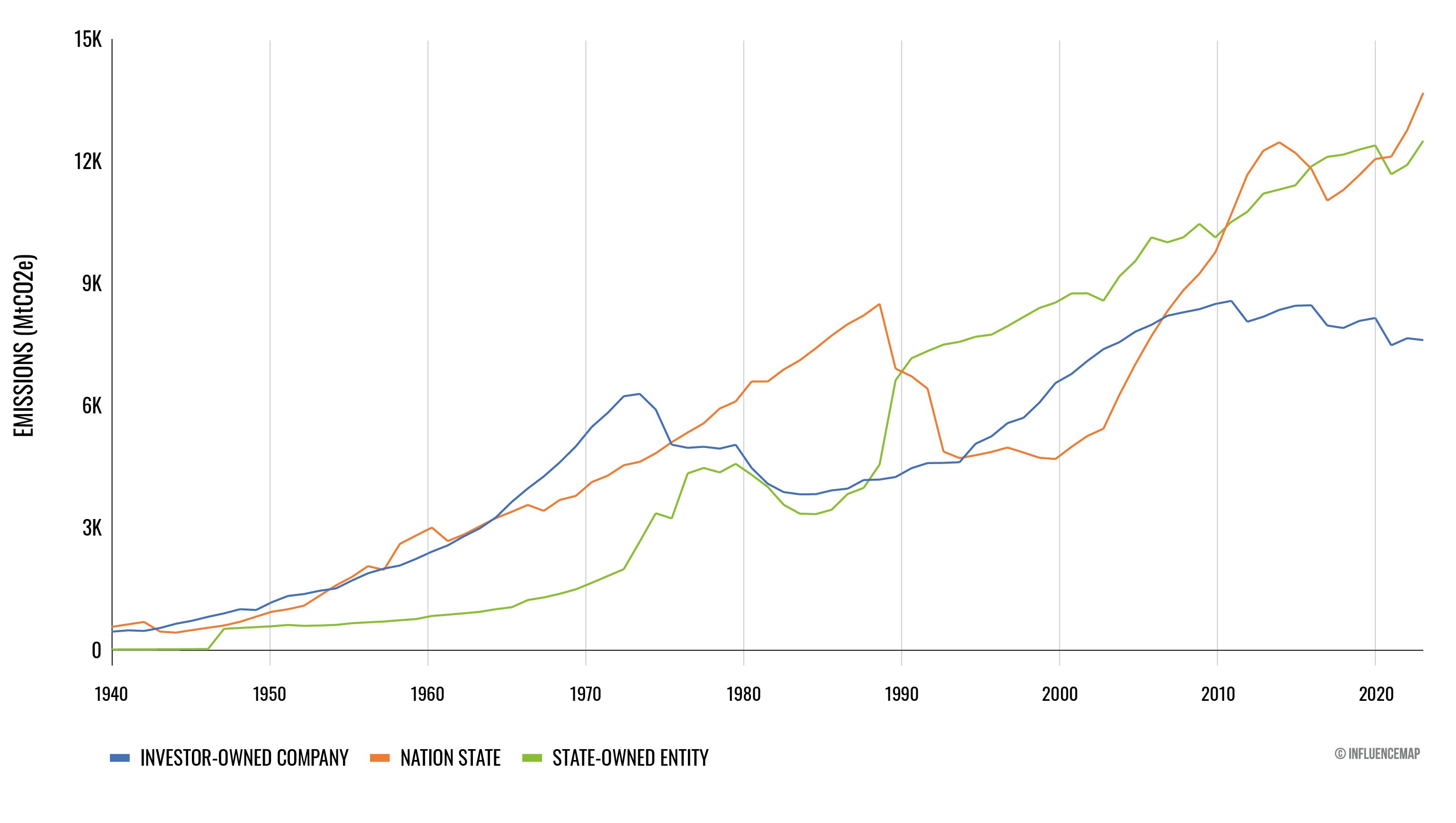This meme is not true and missleading. I know it fits the narrative of "companies bad". But it's not based on fact.
It's based on an article by the guardian.
Just 100 companies responsible for 71% of global emissions, study says
The article is based on the Carbon Major Report.
It describes itself like this:
Carbon Majors is a database of historical production data from 122 of the world’s largest oil, gas, coal, and cement producers. This data is used to quantify the direct operational emissions and emissions from the combustion of marketed products that can be attributed to these entities.
As you can see, they speak about "entities", not companies. Who are said entities?
75 Investor-owned Companies, 36 State-owned Companies, 11 Nation States, 82 Oil Producing Entities, 81 Gas Entities, 49 Coal Entities, 6 Cement Entities
As one might realize, only 75 are Companies. Most of them are either States, or producers of Oil, Gas, Coal and Cement.
The 71 % is not at all about global emissions. This is wrong.
72% of Global Fossil Fuel & Cement CO2 Emissions
So it's 100 entities that are responsible for 72 % of the world's fossil and cement Co2 emission.
https://mander.xyz/pictrs/image/05dfb9e1-ace2-4072-9fc5-7ed6f6eddfb2.png
Looking at them you can see how the top emitter are very much not companies. Also, it's historical Co2, a fact made prominent by the former Soviet union beeing the top emitter.
Let's look at some more findings:
The Carbon Majors database finds that most state- and investor-owned companies have expanded their production operations since the Paris Agreement. 58 out of the 100 companies were linked to higher emissions in the seven years after the Paris Agreement than in the same period before. This increase is most pronounced in Asia, where 13 out of 15 (87%) assessed companies are connected to higher emissions in 2016–2022 than in 2009–2015, and in the Middle East, where this number is 7 out of 10 companies (70%). In Europe, 13 of 23 companies (57%), in South America, 3 of 5 (60%) companies, and in Australia, 3 out of 4 (75%) companies were linked to increased emissions, as were 3 of 6 (50%) African companies. North America is the only region where a minority of companies, 16 of 37 (43%), were linked to rising emissions.
Here the report mixes state and private companies. The rise is most prominent in countries with state owned companies. Privote companies, as seen in Europe and North America, haven't increased that much.
So, all in all: The idea that 100 companies are responsible for the destruction of earth is plain wrong.
I know the ideas that companies are responsible and to blaim for the current state of affairs fits our world view (it fits mine!!), but please don't run into the trap of believing everything you read just because it does.



